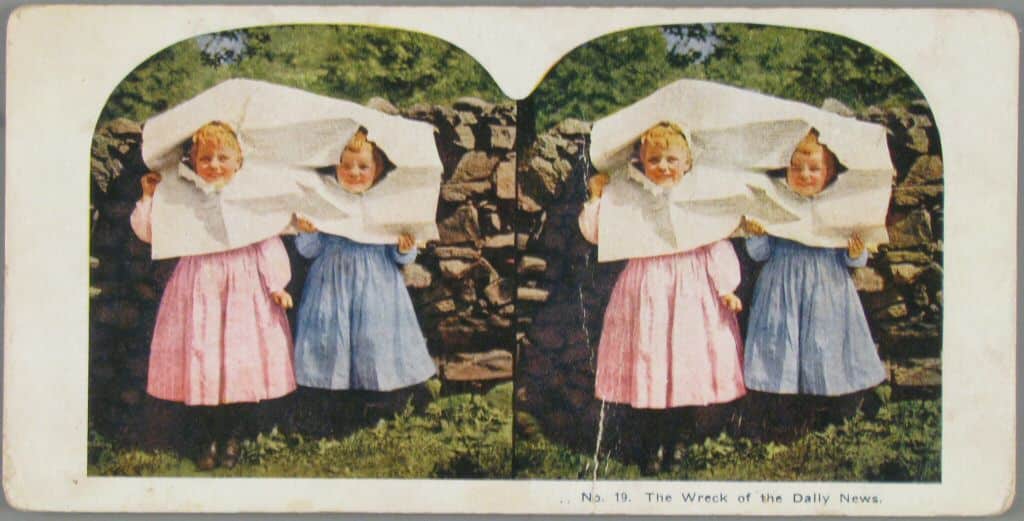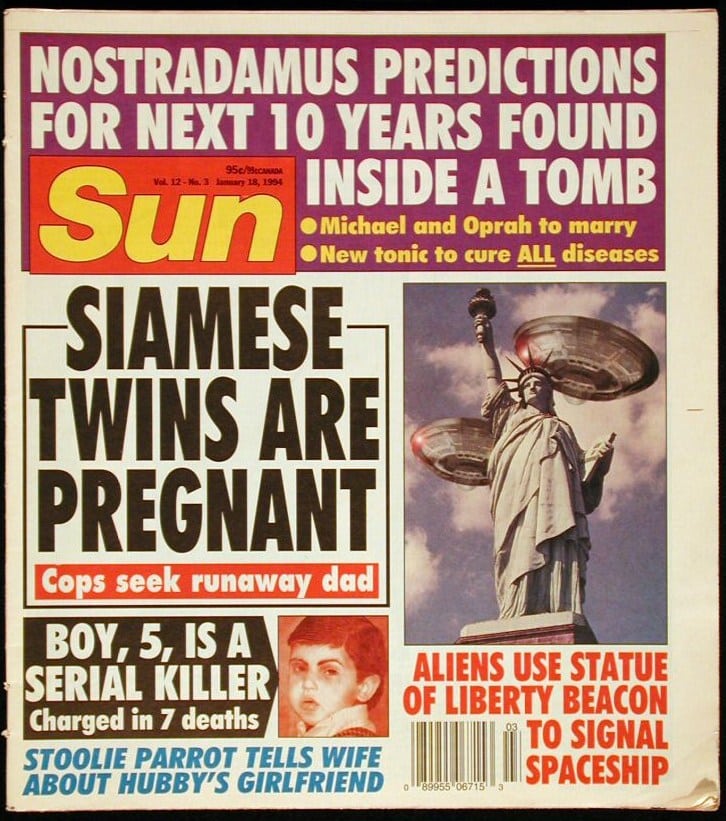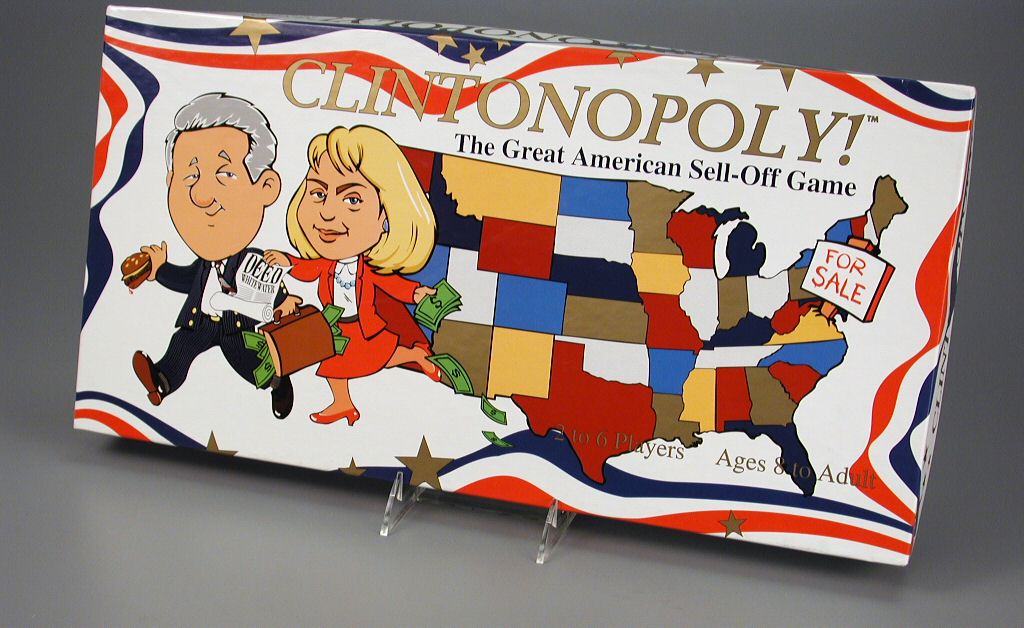Playing with words and images can be funny: joke-telling, trickery, and satire allow us to be subversive without the repercussions that may accompany more malicious behavior. At seven or eight years old, my best friend and I produced a fake weekly newspaper. We pasted school portraits alongside our bylines and painstakingly crafted gossip columns, “horror-scopes,” quizzes, and bizarre feature stories about our classmates. No matter that the publication went defunct after a couple of issues or that its circulation was limited to its two authors—it was great fun, all the more so because the content was completely fabricated. While I wouldn’t go so far as to say that my friend and I were sophisticated enough to use humor as a form of social commentary, some of today’s most successful comedy also comes from those who spoof the news.

The Onion, for example, publishes faux stories only slightly more exaggerated than what one might find in the actual news. Assuming a deadpan tone while recounting the absurd or mundane, the Onion’s writers challenge you to find a reason to smirk while they themselves keep a straight face. If you get their humor, you’ll also understand their position on current events and humankind’s many foibles.
 Supermarket tabloids take the news to its extreme, or perhaps beyond: it is questionable whether some of the stories within these colorful publications are even true. Typically, these papers sensationalize stories with little regard for journalistic objectivity. Celebrities, crime, and the supernatural are all fair game. These papers are not quite informational—more like shocking and amusing, and that’s putting it tactfully. Are they intentionally funny? That’s impossible for me to say, though they’re often good for a chuckle in the checkout line. They also offer an escape from all the truly bad news out there.
Supermarket tabloids take the news to its extreme, or perhaps beyond: it is questionable whether some of the stories within these colorful publications are even true. Typically, these papers sensationalize stories with little regard for journalistic objectivity. Celebrities, crime, and the supernatural are all fair game. These papers are not quite informational—more like shocking and amusing, and that’s putting it tactfully. Are they intentionally funny? That’s impossible for me to say, though they’re often good for a chuckle in the checkout line. They also offer an escape from all the truly bad news out there.
Saturday Night Live’s Weekend Update, Real Time with Bill Maher, The Daily Show with Jon Stewart, and The Colbert Report poke fun at current issues via the airwaves. Have you ever caught one of the hosts stifling a giggle? On the web, the Gregory Brothers of Auto-Tune the News digitally alter video footage; the music video format allows viewers to watch the news with fresh eyes and consider it more critically. (I’d love to post a link to one of these videos, but they’re not quite family friendly—another important component of their humor.) Politics seems to be a favorite subject among these jokesters, but they’re not the only ones who have taken aim at such easy targets.  Political satire has taken other forms, such as this Clintonopoly! The Great American Sell-Off Game, from the Strong’s collections, where players collect Hush Money and draw from Welfare instead of the Community Chest. And speaking of chests, look no further than the toy chest for more lampoonery: is this jack-in-the-box implying that there was a clown in the White House?
Political satire has taken other forms, such as this Clintonopoly! The Great American Sell-Off Game, from the Strong’s collections, where players collect Hush Money and draw from Welfare instead of the Community Chest. And speaking of chests, look no further than the toy chest for more lampoonery: is this jack-in-the-box implying that there was a clown in the White House?
Admittedly, I’m now feeling a little simplistic as I think back on my wily weekly, my counterfeit chronicle, my concocted periodical. (There I go playing with words again!) I guess it was more fun to create it than to read it. It’s easy to imagine the creators of today’s funny papers also having as much fun, if not more, than they desire for their audiences.



